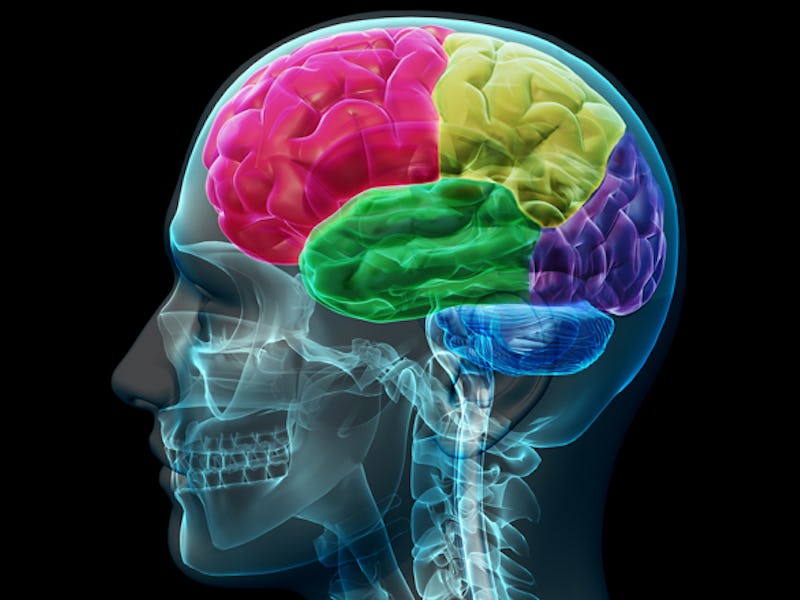Science Explains...When You Should and Shouldn't Trust Your Brain
Your memories are lies and your instincts are predicated on an addiction. Hacking choice is about understanding what you can't understand.

Advice is usually boiled down to regurgitations of the idea that you are the best judge. Follow your heart, trust your gut, to thine own self be true — all utterances that essentially say, hey, what you’re feeling and what you’re thinking is probably all the data you need to make a good decision. In his speech praising life’s “six rules,” former governor/body builder Arnold Schwarzenegger says the first step towards learning the secret of success is to trust yourself.
Your brain is, in a sense, you, and also, in a different sense, a fickle partner. Recollections are far from just recordings of past events that can be flicked on and off like old episodes of Archer. Your emotional memories may have astonishing clarity, but that doesn’t mean they are accurate. In some conditions, emotions make people more susceptible to forming false memories — not just changes in detail to the scene, but entirely fabricated memories of events that never happened.
“Rather than enhancing memory, emotion often leads to a trade-off in attention to, and memory for, central versus peripheral information,” wrote reachers in a 2015 paper published in Emotion Review. “Whether emotion enhances or impairs memory depends greatly on how important the information being remembered is to the individual.”
When people become more stressed or more emotional, a shift in attention means memories are going to be less accurate. But, because the emotions happen concurrently to events, stress hormones make false memories more enduring.
Outside input can also color memories. Repeated questioning, repeated and guided imagery of events, and explaining the plausibility of events have all been techniques used by researchers to trick their subjects into remembering something that didn’t happen. These resulting “memories” are often “confidently held, highly detailed, and emotional.”
Just because memories are recalled emotionally and with confidence, researchers warn, doesn’t mean they are actually authentic. So, next time you’re at a family dinner arguing over something that happened fifteen years ago, you may want to step back and ask whether the event actually happened.
Instinct is the obvious solution, the way to trust oneself without trusting oneself too much. And researchers have found that people make better decisions after a distraction or without deliberation. Overthinking a situation more than often leads to a statistically evident deterioration of decision quality. Instinct informs an intuitive sense that helps us figure out when someone is lying or not, which in turn affects who we choose as our friends and mates. It’s a tool developed from evolution; instinct is underpinned by a “will to survive and a will to reproduce.”.
That said, sometimes our instincts can be wrong to devastating effect. In a issue of the Harvard Business Review, Stanford experimental social psychologist Roderick Kramer writes that for about thirty years he has grabbled with the idea that there may be a problem with how we trust. Our body chemistry rewards us for trusting — when we trust people oxytocin is released and makes us feel close to them — so trusting people might be our way to get a fix. Our better angels may be junkies.
“To survive as individuals, we’ll have to learn to trust wisely and well,” writes Kramer. “That kind of trust — I call it tempered trust — doesn’t come easily but if you diligently ask yourself the right questions, you can develop it.”
The problem is that we’re super hackable. Studies have shown that people who receive a “quick and unobtrusive touch” are more likely to cooperate. Our brains also prime us to make inferences based on visual clues — we’re more likely to trust people who look like us and make stereotypical inferences based on gender, age, race, and other facial characteristics.
“Most of the time our implicit personality theories are pretty harmless; they simply help us categorize people more quickly and render social judgments more swiftly,” writes Kramer. “But they can cause us to overestimate someone’s trustworthiness in situations where a lot is at stake.”
Fair point.
In a 2010 paper entitled History of the Human Sciences, psychological theorist Jonna Brenninkmeijer mused on our desire to test the boundaries of the mind and self-help our way to a healthier brain:
The eternal quest for a better life seems to be reduced to an achievable quest for a better brain. While the self is on the one hand reduced to the brain, it simultaneously has become the operator of this brain. To state this more clearly: you have to take care of your brain, while your brain takes care of you.
If your memories are fictional and your feelings can be demonstrably wrong, what are you, a human that needs to make decisions to function in the world, to do? Simple answer: Everything in moderation. Trust your instincts but don’t be so entrenched you’re not willing to change your mind. Dwell on your boring memories. And maybe eat more oily fish. Sometimes trusting yourself is about understanding how you really work.